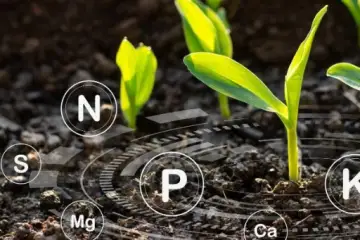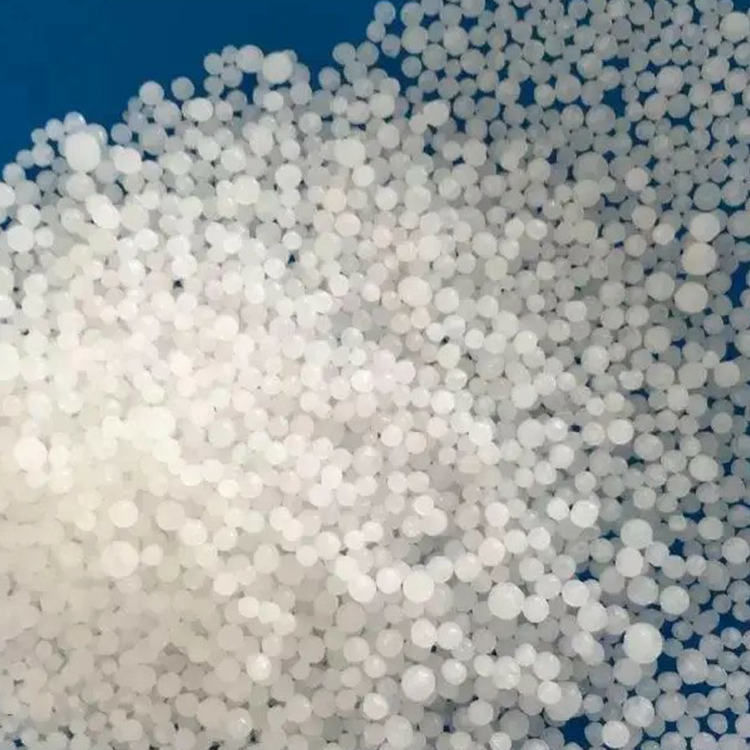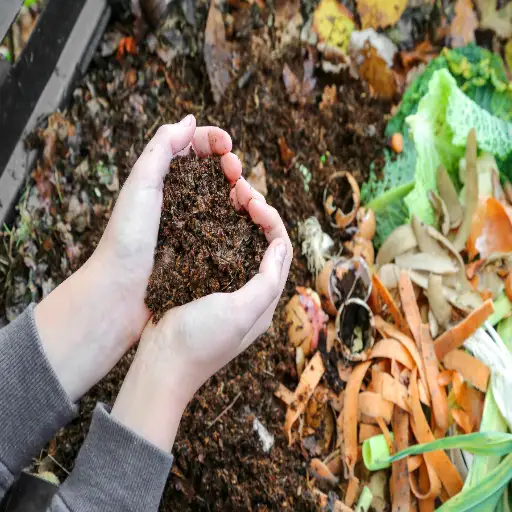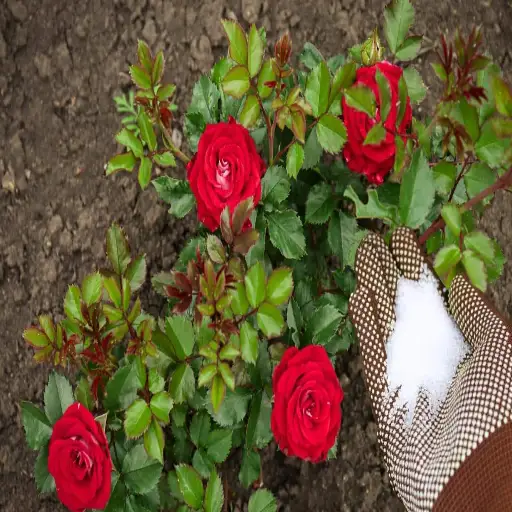Introduction to Succulents and Their Nutritional Requirements
Due to their exotic appearance and ease of care, succulents have become very popular in home gardening. These plants have thick leaves that can store water, which makes them perfect for dry environments and indoor growing conditions. Unlike other types of houseplants, succulents have specific nutritional needs that are vital for their survival as well as development.
In comparison with other plant groups, these nutrients feed the succulent plants less frequently but more precisely. To adjust gardening compliantly with plant physiology; Dr Linda Chalker-Scott from Washington State University has stressed upon it. A diet that is high in potassium and phosphorous but has less nitrogen content is best suited for the good health of the succulent rather than encouraging leafy growth at the expense of the plant’s form.
This is where organic fertilizer comes in handy because they release nutrients slowly making it similar to what would happen if one was applying nutrients in native habitat by mimicking natural nutrient uptake in this plants. This also avoids any instances of nutrient burn caused by synthetic fertilizers that provide too many minerals to be absorbed by the root systems at once. Consequently, one should choose organic manure that is suitable for succulents to grow faster yet maintain their uniqueness.
The Benefits of Organic Fertilizers for Growing Succulents
By avoiding synthetic alternatives and going natural on soil additives, people can ensure healthier living conditions as well as long-life benefits through sustainable agriculture. The raw materials used are either organic or mined minerals such as animal manure or crop waste, which decay gradually supplying all needed nutrients continually. These are released slowly so they conform to the natural cycle of growth whereby the plants get enough nourishments through absorption only.
One thing great about using organic fertilizers on succulents is its environmental impact; there is a lot at stake here when it comes to nature preservation purposes. On the other hand, synthetic ones are responsible for nutrient leaching into nearby water bodies thus causing pollution. Nevertheless, organic ones improve the soil structure, maintain high water content and increase the number of organisms in it. These changes create a much healthier soil environment that can support the growth of succulents without needing to use as many chemicals.
According to Dr. Elaine Ingham, a renowned expert in soil biology, “understanding the soil food web is key to sustainable gardening.” By using organic fertilizers, gardeners can feed their succulents and at the same time develop a more robust system of soil capable of supporting other kinds of plants. Also it allows using organic materials that recycles waste products into valuable manure thereby minimizing total environmental impact and ensuring perpetual renewal in gardening efforts.

Types of Organic Fertilizers Suitable for Succulents
There are several options from which gardeners can choose the best organic fertilizer for succulents, and each has different advantages suited to these specialized plants. Knowing about the different types of organic fertilizers can help in choosing the appropriate one that will support good growth and development.
Fish Emulsion: This kind of organic fertilizer is high in nitrogen although it needs to be sparingly applied with succulents which generally require lower levels of nitrogen. Fish emulsion is very useful in promoting growth in young succulent plants while their roots are still developing.
Compost Tea: Compost tea is made by soaking compost in water; it is a mild nutrient-rich mix. It helps increase soil microbial activity hence enhancing root health for succulents. When you apply compost tea, your soil improves its structure without causing nutrient burn.
Worm Castings: The rich nutrients possessed by worm castings among other organic material make them a slow release source of nutrition. This makes them ideal for succulent plants since they improve soils’ structures and retain moisture without overwhelming plants with excessive nutrients.
When selecting an organic fertilizer for succulents, consider the specific needs of your plants. Light applications during this time could comprise fish emulsion to give the required hormones, while established ones may have worm castings as manure or compost tea with plenty balanced nutrients in their soils.
However, too much application can kill your succulents so it’s important to use these fertilizers wisely. Smaller quantities suggested from scientists like Dr Bethany Richards who is a plant physiologist should be started before increasing their doses once having observed responses on the plant itself carefully. Choose proper type of organic fertilizer and practice correct application to ensure healthy growth and strong plants among your selection of succulents.
How to Apply Organic Fertilizer to Succulents Properly
Proper application of organic fertilizer is essential for the health and growth of succulent plants. Below is a step-by-step guide that ensures effective use of the fertilizers without causing harm to these delicate plants:
Step 1: Choose the Right Time
The best time for applying fertilizer on succulents is during their active growing season, which commonly occurs from late spring to early fall. During this period, succulents are actively growing and can utilize extra nutrients more effectively. Avoid fertilizing during the winter dormancy period for many types of succulents.
Step 2: Prepare the Fertilizer
When using liquid organic fertilizers like fish emulsion and compost tea, ensure you dilute them more than you would for other plant types. To avoid nutrient overload in succulents, a half-strength solution, lower than what is recommended on the label, is advisable.
Step 3: Apply Sparingly
Apply the diluted solution directly to the soil, ensuring not to touch any part of the plant itself. Make sure that the soil is already moist when applying this to prevent root burn. For granular types such as worm castings, place small amounts around the base and lightly mix it with the top soil layer.
Step 4: Monitor and Adjust
After applying fertilizer, watch for any changes in your succulents, either as an improvement or as signs of deterioration. If over-fertilization symptoms like leaf burns or sudden wilting are noticeable, then decrease both the application rate and frequency.
Common Mistakes to Avoid:
- Over-fertilizing: More isn’t always better with succulents—excessive fertilization can result in salt buildup, which may damage the plant.
- Fertilizing at the wrong time: Applying fertilizer during a succulent’s dormant period leads to nutrient wastage and potential damage.
- Improper dilution: Liquid fertilizers must be sufficiently diluted to avoid too strong solutions that can damage the tender roots of succulent plants.
By following these steps and being aware of common pitfalls, gardeners can effectively use organic fertilizer for succulents to stimulate healthy growth without causing harm. Regularly evaluating how the plants respond to the fertilizer will help in making necessary adjustments for optimal plant health.
Checking that Succulents are Healthy After Fertilizing
It is important to keep an eye on the health of your succulent plants after applying organic fertilizer to determine how effective your fertilization has been and adjust accordingly.
Checklist for Optimal Growth and Health:
- Colour: Healthy succulents will have all over vibrant colors. Any discoloration like too much yellowing or fading can be indicative of a nutrient imbalance.
- Growth: Look out for new growth such as new leaves or flowers which would mean the plant is making use of nutrients well.
- Leaf Texture: Succulent leaves should be firm and fleshy. Soft, mushy leaves could indicate overwatering or overfertilization.
Dealing with Common Problems:
- Nutrient Burn: If the tips of the leaves begin turning brown or black, this may indicate nutrient burn from excessive fertilizer application. Lowering the frequency and strength of fertilizer applications is advised.
- Insufficient Growth: Poor light levels could be responsible if succulents are regularly fed but remain small; it is a common cause for underdevelopment in these plants.
- Root Rot: An abundance of moisture around roots resulting from excessive fertilization can lead to root rot. Ensuring good soil drainage and slightly reducing watering can mitigate against this potential problem.
By consistently reviewing these indicators following the application of fertilizers, you will be able to keep your succulents alive and thriving in their environments. Modify your care routine according to what you have observed so as to promote vigorous development while averting any potential health issues at hand.
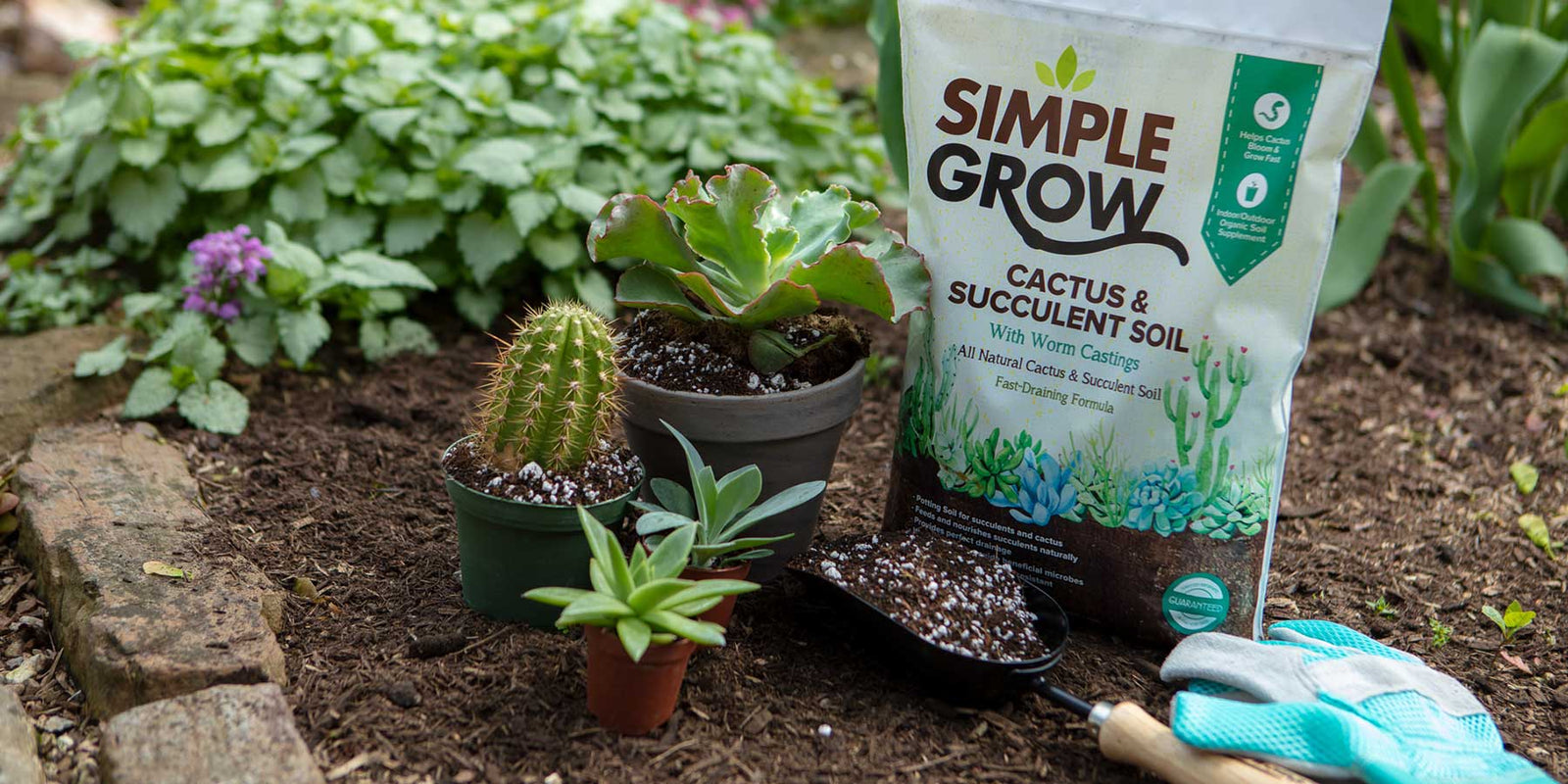
Best Practices for Organic Fertilization in Different Seasons
Different types of organic fertilizers need to be applied at different times of the year. For succulents, it is important to know how to adjust organic fertilization strategies for different seasonal settings whether indoor or outdoor, so that they grow well and healthy throughout the year.
Spring and Summer:
Organic fertilization will benefit mostly succulent plants during their active growth period in spring and early summer. It’s when they require nutrient support for growth spurts especially. Use light applications of a balanced, diluted biofertilizer like worm castings or compost tea every month on them as this can significantly boost their development and life force during these hot months.
Fall and Winter:
As temperatures cool and days grow shorter, most succulent plants enter a state of dormancy which requires reduced fertilizer use. Therefore, there is a need to cut back on the number of times you apply manure during such time so that your plants do not acquiresuch unused nutrients that may cause damage to them. In fall light application can help prepare the plant to go dormant but generally additional fertilizing should be stopped till spring heat arrives.
Indoor vs. Outdoor Succulents:
In terms of variation in environmental conditions inside homes where indoor succulents thrive particularly, seasonal growth changes are generally less pronounced unlike outside ones. Nevertheless, they still derive a lot from being less frequently fed with manure through winter periods.For example while it’s true that there are no signs indicating that your plant is growing outdoors before adding an all-purpose fertilizer ensure you see new leaves developing.
Adapting to Your Environment:
Succulent response towards fertilizers should dictate everything else: health-status; air temperatures; lighting conditions etc. Those located in hotter sunnier places might be able to keep growing well into fall due the availability nutrients up taken by each other while those found in cooler shaded areas could have slowed down much before.
By adjusting your organic fertilization to fit the needs of your succulents at different times of the year and taking into account indoor versus outdoor conditions, you can assure your plants are healthy all year round. Consistent monitoring and amendment of a fertilizer strategy is fundamental for successful caring of succulents.
Conclusion
In conclusion, it is important to choose the right organic fertilizer for succulents for their proper growth and well-being. Therefore, understanding the peculiarities of these plants and providing them with individualized organic fertilization helps gardeners to make them more vigorous. The use of organic fertilizers has many advantages that include such things as healthier soil and a reduced negative impact on the surrounding environment making them superior in terms of ecological gardening.
It’s necessary therefore to keep trying out different kinds of organic manures and amounts so as to establish best options for your specific types of succulents. For this reason, periodic evaluation and adjustment of feeding techniques in relation to reactions are very essential in successful cultivation of succulents. Remember that these sustainable practices will not only improve the look of your succulent collection but also its long-term wellbeing together with that of your garden ecosystem.
Here are three references that might be useful for learning more about using organic fertilizer for succulents:
- PubMed: This database includes a wide range of scientific articles on various topics, including potentially relevant studies on the effects of organic fertilizers on plant health. You can explore detailed research articles to find specific information on how different organic fertilizers impact the growth of succulents.
- EarthExplorer by the USGS: While primarily a tool for accessing satellite imagery and environmental data, EarthExplorer can provide insights into environmental conditions that affect plant growth, which might be useful for understanding how organic fertilizers interact with soil and plant systems in different environments.
- Centers for Disease Control and Prevention (CDC): The CDC offers extensive resources on environmental health and safety, which can include information on safe gardening practices and the use of non-toxic substances like organic fertilizers in residential settings.


